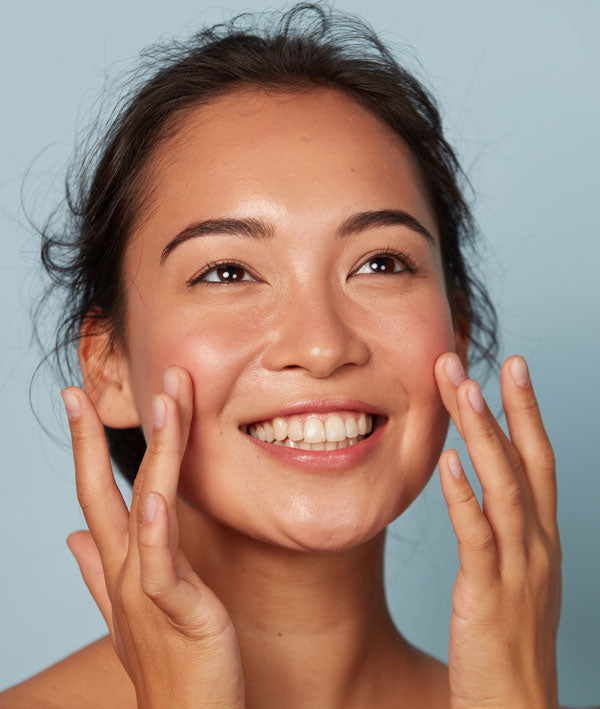Many people with acne-prone skin struggle with stubborn scars left behind by past blemishes. While they often won’t disappear on their own, there are topical products that can kickstart the body’s healing process to promote a smoother complexion.
What Causes Acne Scars?
Acne scars are the body’s response to inflammation in the body caused by acne. The body reacts to the inflammation by either over or under producing tissue in an attempt to heal. The result is a scar that is left behind often long after the blemish has diminished.
Different Types of Acne Scars
There are two main categories of acne scars. First up, you have hypertrophic scars. These are raised scars which are formed by a buildup of excess tissue. They are typically the same size as the blemish itself. Raised scars that extend beyond the boundaries of the healed blemish are referred to as keloid scars.
Atrophic scars, on the other hand, form when there is too little tissue, causing a small dent in the skin. There are three main types of atrophic scars: ice pick, boxcar, and rolling scars.
Atrophic and hypertrophic scars typically won’t go away on their own. However, targeted serums can help reduce their appearance. Professional treatments can also be used to tackle more aggressive scars that don’t respond to topical formulas.
Many people mistakenly believe that dark spots left behind by blemishes (known as post-inflammatory hyperpigmentation) are also acne scars. While they don’t technically fall under this category, they can be addressed with many of the same treatments and ingredients that are used for acne scars.
Ingredients to Look Out For
These are some of the most effective ingredients that you’ll want to keep an eye out for as you’re looking for products that help reduce acne scars and fade hyperpigmentation:
Best Serums for Acne Scars
If you’re ready to tackle your acne scars, the first thing you’ll want to do is find a high-quality daily vitamin C serum, such as the Vitamin C Boost Serum. What makes this clean and fragrance-free formula particularly effective is that it combines a potent concentration of vitamin C with licorice root extract to deliver the best possible results when it comes to reducing acne scarsand fading dark spots. It’s also packed with additional antioxidants and hydrators to keep the skin healthy, soft, and radiant.
In addition to a vitamin C serum, you may also want to work an exfoliating serum into your nighttime routine. As mentioned above, serums made with AHAs are best, as they work on the surface of the skin to treat discoloration and texture issues. Keep in mind that these types of serums typically only need to be used one to two times per week, especially if they are made with a potent concentration of exfoliants.
Last but not least, consider using a retinol serum at least a couple times per week in the evening. There are both over-the-counter products, as well as stronger prescription-based formulas you can get from a dermatologist.
Application Tips
Here are a few application tips for you to create the ultimate routine for treating acne scars:
- As is the case with most skincare formulas, consistency is key. For the best results, apply your serums on a regular basis, and be patient as you wait to see the effects – it may take a few months!
- To minimize irritation, don’t layer active ingredients. For example, you may choose to apply your vitamin C serum every morning, and then alternate between using retinol and exfoliating serums in the evening.
- During the day, finish off your routine with sunscreen to shield against damaging UV rays (which can make scarring and dark spots worse, hindering the healing process). This is even more crucial if you use retinol and exfoliants in your routine, as they can increase your skin’s sensitivity to the sun.







